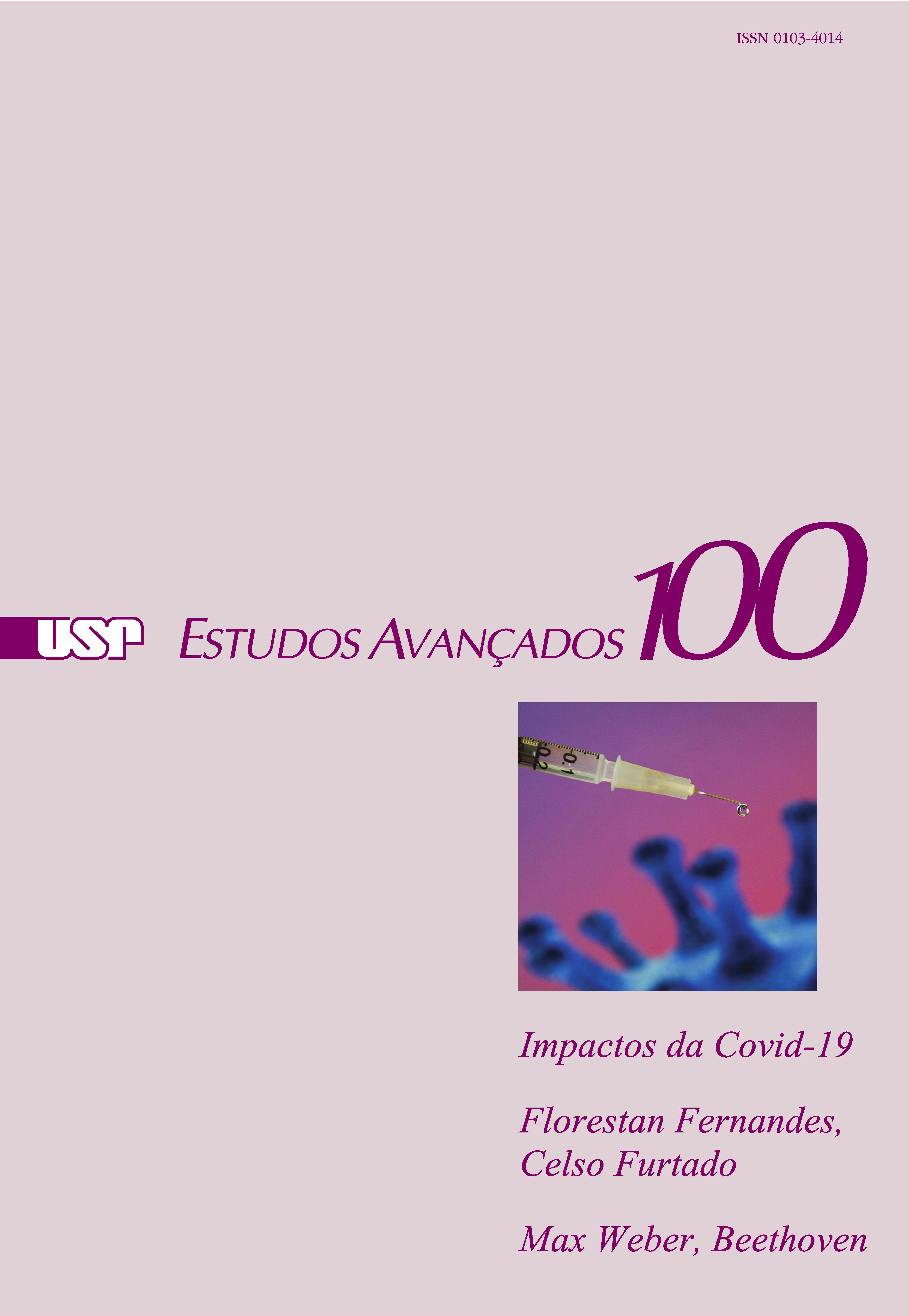A diversidade global dos Institutos de Estudos Avançados
DOI:
https://doi.org/10.1590/s0103-4014.2020.34100.022Keywords:
Institutes for Advanced Study, Global production of knowledge, Science policy, Interdisciplinarity, Excellence initiativesAbstract
When the first Institute for Advanced Study was founded in Princeton in 1930, nobody foresaw that it would eventually become a model that would spread across the globe. Especially within the last 20 years a significant number of new Institutes for Advanced Study (IAS) have surfaced in many regions of the world. Classified as “academic paradises,” they are often regarded as isolated islands or ivory towers, but this is only one part of the story: I will show that (a) IAS are both products and driving forces of the globalization of research and are closely intertwined with different trends of global science policies, and (b) IAS, despite their small size, have played an important role in the development of universities and the sciences, and continue to do so. Finally, I would like to provide an overview of future challenges and tasks of the IAS as spaces of global production of knowledge.
Downloads
References
ADES, C. Institute of Advanced Studies at the University of São Paulo (IEA): commitments. Estudos Avançados, v.25, n.73, p.159-74, 2011. Disponível em: <http://www.iea.usp.br/en/journal/19ades>.
ALTBACH, P. G. Empires of Knowledge and Development. In: ALTBACH, P. G.; BALÁN, J. World Class Worldwide, Transforming Research Universities in Asia and Latin America. Baltimore, 2007. p.1-30.
_______. Massification and the Global Knowledge Economy: The continuing Contradiction. International Higher Education, n.80, p.4, Spring 2015.
FLEXNER, A. Remarks of the Director at the Organization Meeting. October 10, 1930.
_______. Confidential Memorandum to the Trustees of the Institute for Advanced Study. September 26, 1931.
_______. The Usefulness of Useless Knowledge. Princeton University Press (1939), 2017.
FRICK, W. et al. Introductory Statement “Mapping the World of UBIAS”. In: University-based Institutes for Advanced Study in a Global Perspective: Promises, Challenges, New Frontiers, Conference Proceedings. Ed. by Freiburg Institute for Advanced Study, June 2011, p.10-18.
GODDARD, P. There are no excuses in paradise. The Institute for Advanced Study. Past, Present and Future, Keynote speech at the inauguration of the FRIAS on 05.05.2008, unpublished manuscript.
_______. The Development of Institutes for Advanced Study and their Role in the Contemporary University, Presentation at Nagoya University (11.03 2016), unpublished manuscript.
HAZELKORN, E. World Class Universities or World Class Systems? Rankings and Higher Education Policy Choices. In: HAZELKORN, E. et al. (Ed.) Rankings and Accountability in Higher Education: Uses and Misuses. Paris: Unesco, 2013. p.71-94.
_______. (Ed.) Global Rankings and the Geopolitics of Higher Education – Understanding the influence and impact of rankings on higher education, policy and society. New York, 2017.
INSTITUTE FOR ADVANCED STUDY PRINCETON. (Ed.). Institute for Advanced Study: An introduction. Princeton, 2013. p.15.
LAUDER, C. Constructing Hidden Narratives, The History of the Institute for Advanced Stduies in the Humanities (IASH), at the University of Edinburgh, 1969-2013. History of Universities, v.XXXI/2, published to Oxford Scholarship Online: January 2018.
OECD. Promoting Research Excellence. New Approaches to Funding, 2014.
PADBERG, B. The Center for Interdisciplinary Research (ZiF) – Epistemic and Institutional Considerations. In: WEINGART, P.; PADBERG, B. (Ed.) University Experiments in Interdisciplinarity – Obstacles and Opportunities. Bielefeld, 2014. p.95-113.
SCHELSKY, H. Grundzüge einer neuen Universität. Eine Denkschrift [17.08.1965]. In: MIKAT, P.; SCHELSKY, H. Grundzüge einer neuen Universität. Zur Planung einer Hochschule in Ostwestfalen, Gütersloh 1967a, S. 35-70. Disponível em: <https://www.uni-bielefeld.de/(de)/ZiF/Allgemeines/Schelsky_2.pdf>.
_______. Das Zentrum für interdisziplinäre Forschung. Eine Denkschrift.
In: MIKAT, P.; SCHELSKY, H. Grundzüge einer neuen Universität. Zur Planung einer Hochschule in Ostwestfalen. C. Bertelsmann Verlag, Gütersloh 1967b, S. 71-88. Disponível em: <https://www.uni-bielefeld.de/(de)/ZiF/Allgemeines/Schelsky.pdf>.
THACKRAY, A. Notes Towards a History, based on a talk given to the Board of Trustees on April 27, 1984. Disponível em: <https://casbs.stanford.edu/casbs-origins>.
WITTROCK, B. Institutes for Advanced Study: Ideas, Histories, Rationales, Keynote Speech on the Occasion of the Inauguration of the Helsinki Collegium for Advanced Studies, University of Helsinki, December 2, 2002, unpublished.
Downloads
Published
Issue
Section
License
Copyright (c) 2020 Britta Padberg

This work is licensed under a Creative Commons Attribution-NonCommercial 4.0 International License.
Estudos Avançados não celebra contrato de cessão de direitos autorais com seus colaboradores, razão pela qual não detém os direitos autorais dos artigos publicados. Os interessados em reproduzir artigos publicados na revista devem necessariamente obter o consentimento do autor e atribuir devidamente os créditos ao periódico.


